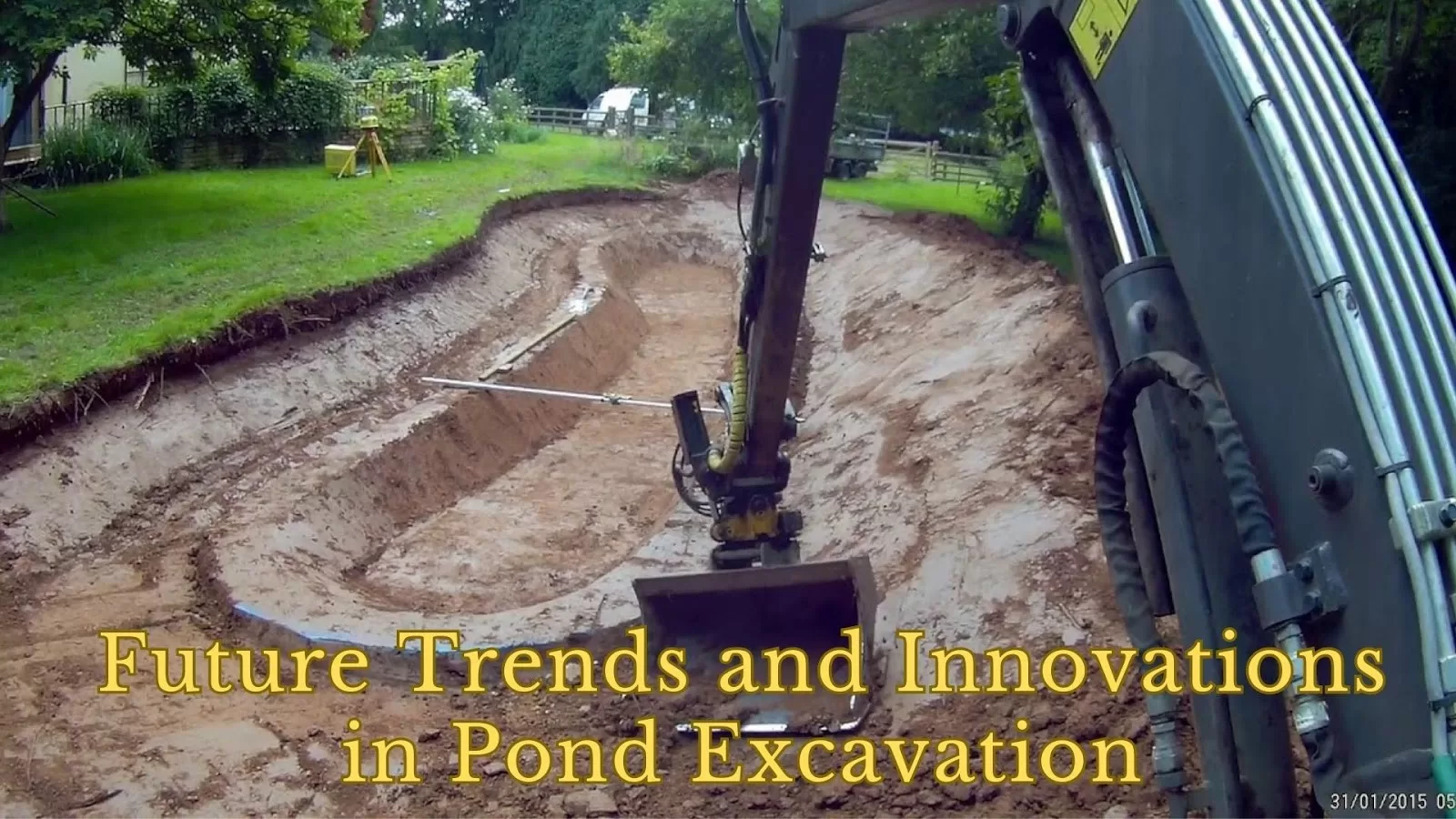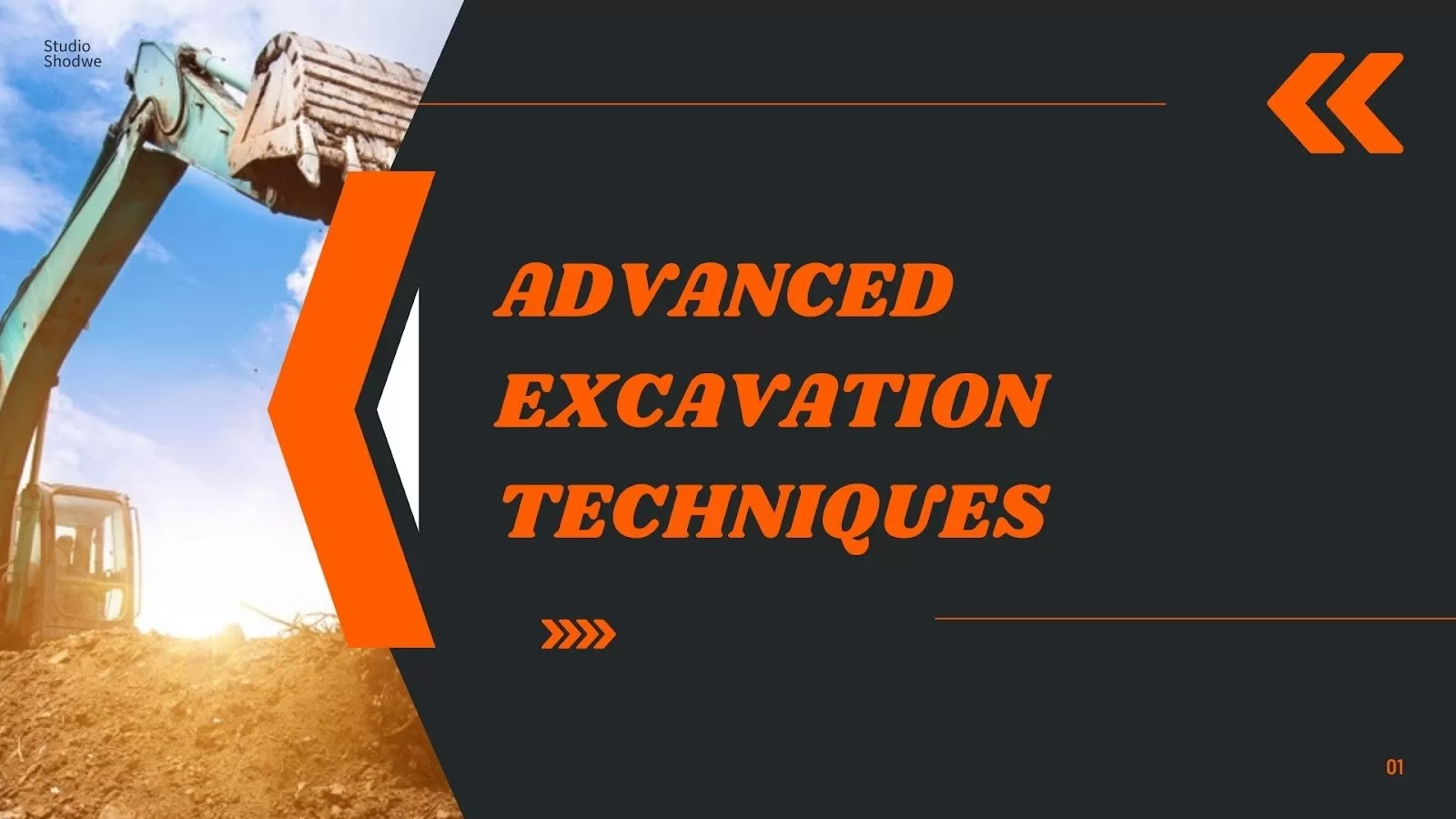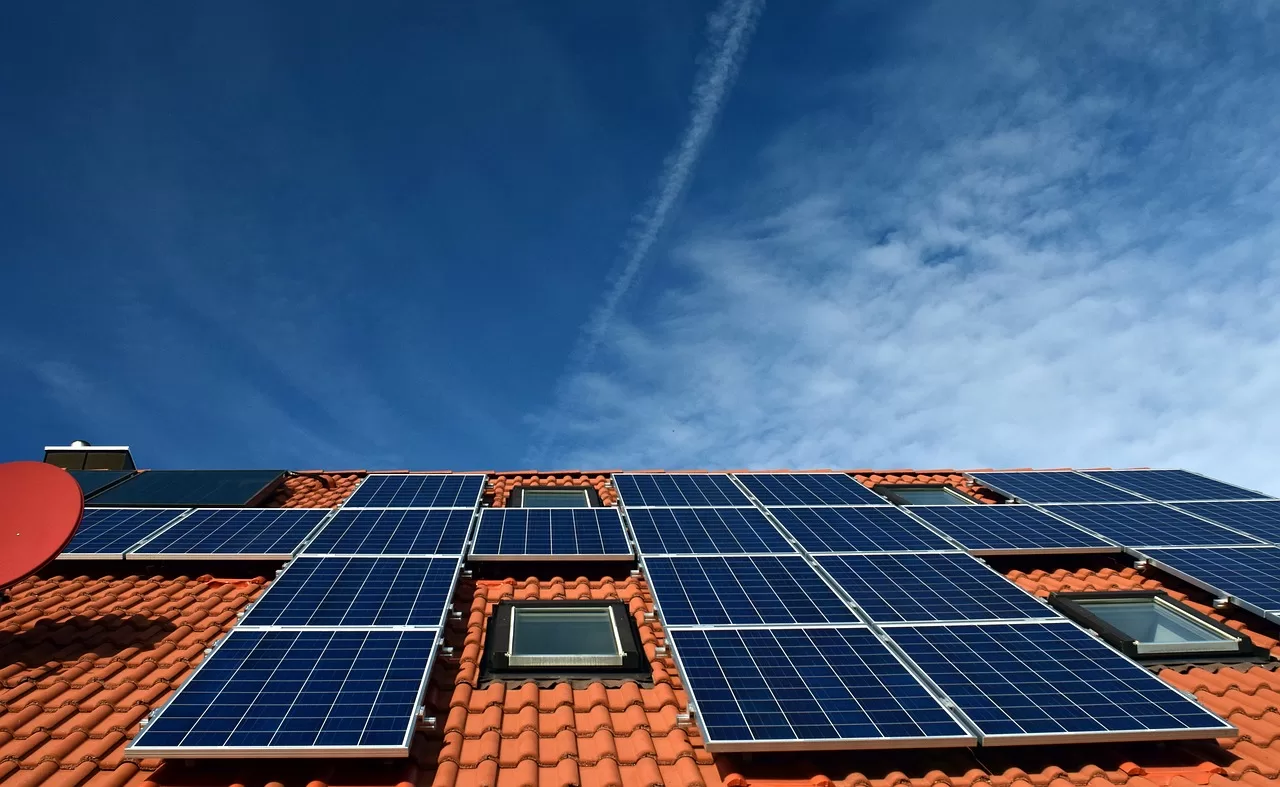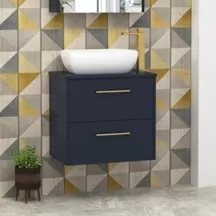As the demand for ponds continues to rise, it becomes important to explore the trends and innovations that are shaping the future of this industry.

In this article, we will delve into the latest advancements that the pond excavation industry is embracing to meet the evolving needs of its clients.
We will uncover the key elements driving the industry forward, from sustainable practices and advanced excavation techniques to customized designs and the integration of smart pond technology. Join us as we explore the exciting possibilities and envision the future of pond excavation in this ever-evolving landscape.
Advanced Excavation Techniques
Pond excavation is embracing advanced techniques to enhance efficiency, accuracy, and project outcomes. These innovations in excavation technology are revolutionizing the industry and allowing contractors to deliver exceptional results.
One notable advancement is the use of laser-guided grading systems. By employing laser technology, contractors can measure and control the depth, shape, and contours of the pond excavation.
This level of accuracy ensures alignment of the final result with the envisioned design, thereby minimizing errors and rework. Laser-guided grading systems also streamline the excavation process, saving time and reducing labor costs.
Another game-changing technique is the integration of GPS-assisted machinery. By combining GPS technology with excavation equipment, we can achieve unparalleled precision in their work.
GPS systems provide real-time positioning of data, allowing operators to follow precise coordinates and achieve consistent depths and slopes throughout the excavation process.
Not only does this advanced technology enhance the quality of the final product, but it also maximizes productivity and minimizes material waste.
Additionally, contractors are utilizing advanced machinery and equipment designed for pond excavation. Excavators equipped with specialized buckets and attachments enable efficient soil removal and shaping while minimizing disruption to the surrounding areas.
These purpose-built tools, coupled with skilled operators, help faster project completion without compromising on quality.
Sustainable Practices
The focus on sustainability has become paramount in the pond excavation industry, as contractors recognize the importance of minimizing their ecological impact.
By adopting sustainable practices, these professionals not only meet client expectations but also contribute to the preservation of our natural resources.
Read Also :
One of the key aspects of sustainable practices in pond excavation is the use of eco-friendly materials. Contractors prefer materials with a minimal environmental impact, such as recycled or locally sourced materials.
This approach reduces the carbon footprint associated with the construction process and promotes responsible resource management.
Additionally, pond excavation contractors are incorporating natural filtration systems into their designs. These systems mimic the natural processes that occur in ecosystems, promoting water quality and reducing the need for chemical treatments.
By integrating these systems, contractors create self-sustaining ponds that need less maintenance and support the health of the environment.
Another significant trend is the design of ponds that serve as wildlife habitats. Contractors are mindful of the importance of supporting local biodiversity and are incorporating features like underwater ledges, shallow areas, and aquatic vegetation to provide shelter and food sources for various organisms.
Not only do these habitat-focused designs enhance the ecological value of ponds, but they also create captivating and harmonious spaces for clients to enjoy.
Furthermore, sustainable practices extend to the management of water resources. Contractors are implementing water conservation strategies, such as rainwater harvesting and efficient irrigation systems, to cut water usage and waste.
These measures contribute to the sustainability of the ponds and align with the growing need for responsible water management in today’s world.
Customized Designs
In response to the evolving preferences and desires of clients, These excavation contractors are placing a strong emphasis on offering customized designs. Today’s clients seek unique and personalized water features that reflect their individual tastes, lifestyles, and surrounding landscapes.
Customization begins with a thorough understanding of the client’s requirements and aspirations. They collaborate with their clients to gather specific details, such as preferred pond size, shape, and depth. They also take into account any specific features or elements the client desires, such as waterfalls, fountains, or intricate rock formations.
With this information, contractors leverage their design skills to create tailored solutions that align with the client’s vision.
They consider the site’s topography, surrounding vegetation, and architectural elements to ensure seamless integration of the pond into its environment.
Not only do these water features meet the client’s aesthetic preferences, but they also harmonize with the natural surroundings.
Furthermore, contractors use a variety of construction techniques to realize these customized designs. They use different materials, such as natural stone, decorative concrete, or prefabricated liners, to achieve the desired aesthetic effect.
Skilled craftsmen are engaged to arrange rocks, install water features, and create unique water movement patterns that enhance the appeal of the pond.
Smart Pond Technology
The rapid advancement of technology has made its way into the pond excavation industry, giving rise to the integration of smart pond technology.
This innovative approach combines automation, connectivity, and intelligent systems to enhance the management and maintenance of ponds, providing clients with convenience, efficiency, and improved performance.
One of the key components of smart pond technology is the implementation of automated water quality monitoring systems. These systems use sensors and probes to check crucial parameters such as pH levels, temperature, dissolved oxygen, and nutrient concentrations.
Real-time data is collected and analyzed, providing valuable insights into the health of the pond. Should any imbalances or issues be detected, alerts can be sent to pond owners or contractors, facilitating proactive measures.
Remote-controlled pumps and filters are another aspect of smart pond technology that simplifies pond management. With the use of mobile apps or online platforms, pond owners can control and adjust the operation of pumps and filtration systems.
This level of control ensures optimal water circulation, filtration, and aeration, leading to improved water quality and a healthier pond ecosystem. Additionally, remote access allows for quick troubleshooting and adjustments without the need for physical intervention, saving time and effort.
Mobile applications designed for pond management have also emerged as part of smart pond technology. These apps offer a range of features such as scheduling maintenance tasks, tracking water quality trends, providing guidance on fish and plant care, and even integrating weather data for intelligent irrigation and water level management.
Pond owners can access all relevant information and control their ponds from their smartphones or tablets, enhancing the user experience and making pond ownership more accessible and enjoyable.
The integration of smart technology in pond excavation benefits pond owners. By monitoring the performance of the ponds they have constructed, they can provide timely maintenance and support services.
Additionally, the availability of data from smart pond systems enables contractors to make data-driven recommendations and optimizations for future pond designs and installations.
Smart pond technology not only offers convenience and efficiency but also contributes to sustainable pond management.
By maintaining optimal water quality and circulation, smart systems minimize the need for excessive chemical treatments and water wastage. This promotes a more environmentally friendly approach to pond maintenance, reducing the environmental impact and preserving the balance of the pond ecosystem
Education and Collaboration
Education and collaboration play vital roles in the continuous growth and advancement of the pond excavation industry. Recognizing the importance of staying updated with the latest knowledge and techniques, pond excavation contractors engage in professional development and foster collaborative relationships with industry experts.
Continuous education is essential for industry people to stay current with emerging trends, technologies, and best practices in the field.
They attend workshops, seminars, and industry conferences to expand their knowledge and skills. By staying informed about the latest developments, contractors can provide clients with the most up-to-date solutions and deliver projects that meet industry standards.
Collaboration is another key aspect of professional growth in any industry. Contractors seek opportunities to collaborate with landscape architects, designers, and other professionals involved in the field. Collaborative efforts allow for the exchange of ideas, expertise, and innovative approaches to pond design and construction.
By collaborating with landscape architects, they can leverage their design expertise to ensure that ponds seamlessly integrate into the overall landscape design. This collaboration results in cohesive and visually appealing outdoor spaces that blend harmoniously with the surrounding environment.
Collaboration with experts in related fields, such as hydrology, ecology, or water management, brings additional insights and knowledge to the table.
This interdisciplinary approach enables us to incorporate sustainable practices, ecosystem preservation techniques, and advanced water management strategies into their pond designs. The result is not only visually stunning ponds but also ecologically sound and functional water features.
Education and collaboration also benefit clients by ensuring that they receive the highest level of expertise and innovation. Clients can have confidence in contractors who actively seek knowledge and collaborate with industry professionals, knowing that their projects are in capable hands.
The collective expertise and shared resources contribute to the successful realization of clients’ visions and the delivery of outstanding pond projects.
Conclusion
In conclusion, the future of pond excavation is characterized by a blend of sustainability, advanced techniques, customization, and smart technology.
Contractors minimize their environmental impact and create self-sustaining ponds by adopting sustainable practices. The integration of advanced excavation techniques ensures precise and efficient project execution. Customized designs cater to clients’ preferences, resulting in unique and harmonious water features.
The incorporation of smart pond technology enhances convenience, efficiency, and sustainability in pond management. Together, these trends and innovations shape a future for the pond excavation industry that promises stunning and eco-friendly water features.










